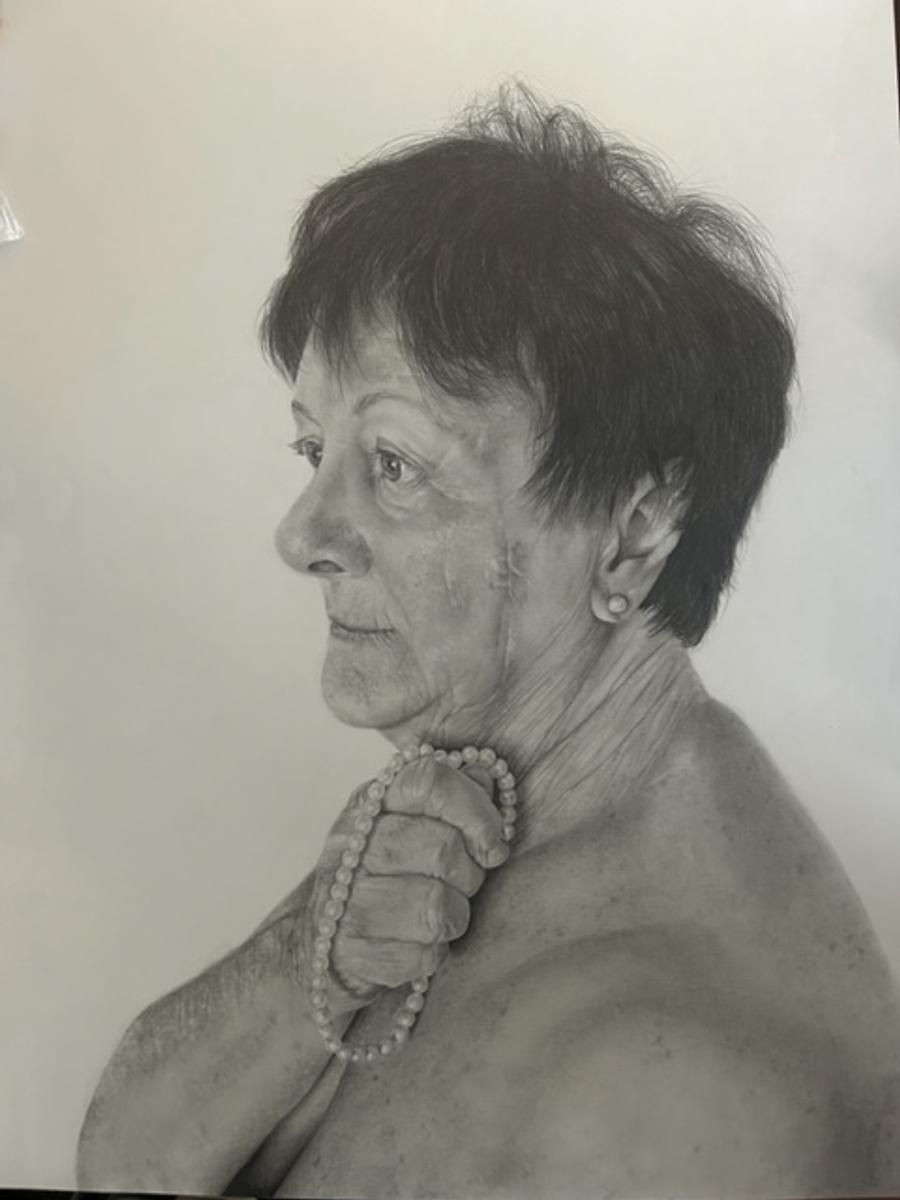Art Creative Practice
Student Showcase

Art Creative Practice
Student Showcase
My name is Maya and I am a year 12 student currently studying Art Creative Practice (ACP) through VSV (Virtual Schools Victoria). This is a new VCE art subject that will hopefully have enough student interest to be part of the NHS curriculum next year.
Having completed Art Making and Exhibiting (AME) as an advancement last year and being passionate about art, I wanted to continue my studies in this area. ACP is great for students who love the art making process itself and diving deeper into the message, meaning and symbolism of artworks.
For those who may be interested, here are some of the key differences between ACP and AME:
My final 'Body of Work' (artwork) for Unit 3 was of my Nan. I originally took my inspiration from Salvador Dali and his artwork 'The Face of War', mainly for it's confronting facial


expression. Through further exploration, I discovered it was common to see surrealist works that depicted women in a sexist manner, for example naked, young and faceless. To protest against this poor representation of women, I chose an intimate portrait of an older woman's face to strengthen my message.
The artwork is composed of graphite pencil and powder on A1 paper. Nan is such an important part of my life and has always been a strong female role model. In the portrait, she is holding her mother's pearls, which represent the sexism women have had to endure throughout history. Like jewellery, she is passing it down to the next generation, however she is sad and reluctant to do so because she, like the generations before her, hoped for so much better.